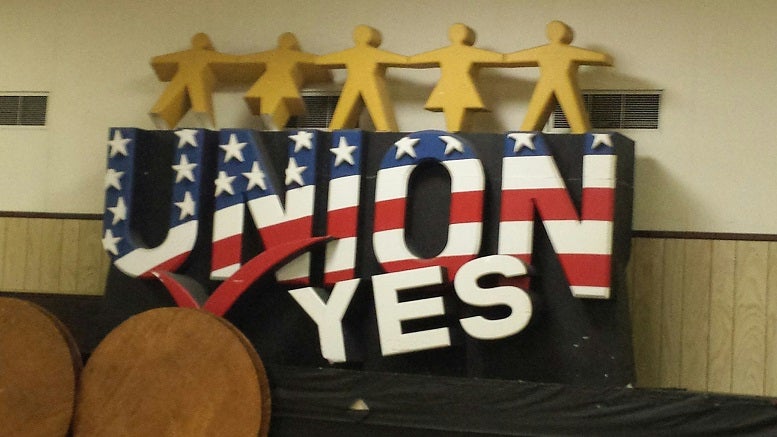Uncategorized
House Panel Looks to Beef Up Labor Laws

It’s not easy for workers looking to come together to organize for power in the workplace. Decades-old labor laws in many cases have been defanged and are now ineffective. Corporate conservatives have taken advantage of that fact to tamp down on efforts to empower hardworking Americans and are profiting even more because of it.
Workers looking to join the Teamsters have experienced this firsthand. At XPO, for example, the company has contracted with several union-busting firms to spread their message of hate for unions at all of their facilities. Meanwhile, the company has fought tooth-and-nail against locations that have voted to join the union by stretching out negotiations on a first contract for as long as four years in some cases.
Recent iterations of Congress have provided no relief for workers. But that may now be changing, thanks to Democrats gaining control of the House this year. The House Education and Labor Workforce Protection Subcommittee hearing held yesterday sought to shine a light on the need for labor law reform.
Subcommittee Chairwoman Frederica Wilson (D-Fla.) said history shows working Americans have gained when unions are powerful. “America’s unions are engines of economic mobility,” she said. “For generations they have fueled our nation’s prosperity, protected the health and safety of American workers, and supported a strong middle class.”
But that’s not where things are today, and income inequality is growing because of it. The share of total pay for the top 10 percent skyrocketed from 31.9 percent to 47.8 percent between 1973 and 2015, she noted. Wages have stagnated in recent years due to decreased union density, even though productivity has soared.
“If you claim to back the interests of working people, you must be pro-union,” Wilson said. But weak labor laws have undermined unions and driven membership down. “This shift has had widespread consequences for working families and the middle class,” she added.
Rep. Martha Fudge (D-Ohio) agreed. “The only problem I see today with labor laws are the ones who want to destroy them,” she said. “Those who have become more desperate and more aggressive in their effort to destroy people who work hard every day … these are people who have probably never worked by the sweat of their brow or the bend of their back.”
So how could the system be improved to help workers? Labor attorney Devki Virk told House Education and Labor Committee Chairman Bobby Scott (D-Va.) that beefing up injunctive relief was essential to ensuring those seeking to organize feel protected by the process.
“Individuals who take the lead and come out as supporters end up being suspended, fired and targeted,” she said. “And it’s not just that worker that is hurt – it is all the other workers who want to have a union who see that happen and are reminded of the coercive authority of their employer.”
Virk added that a better system was also needed to ensure companies like XPO negotiate a first contract in good faith. As it stands, employers have no incentive to move forward with the process, and therefor stall. She noted it would be helpful to create a mediation process for that would require both sides to come to the table if a first contract has not been reached by a certain time.
That’s how lawmakers can really empower workers!